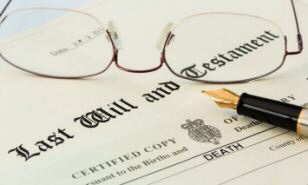Another common question we hear is concern about “inheriting” the debt of a deceased individual. That doesn’t happen in the probate process, but a broader explanation is necessary.
Probate involves dealing with assets AND debts. For example, notice is given to all creditors, potential creditors, and unknown creditors. The creditors can then file a claim in the probate proceedings. After the prescribed time has elapsed after giving the required notices, any potential claims that are not filed are dismissed, or, in other words, not paid. Yay. For those creditors that do file a claim, there is still an option to challenge a claim and potentially even a filed claim may not need to be paid. Yay again.
If a claim is filed, and not challenged by the personal representative, then the assets of the decedent are used to pay that claim before the estate can be closed. BUT, if the those claims exceed the total amount of assets, you don’t personally have to pay those unpaid debts. There is a hierarchy of who gets paid first and if certain claims are reduced because of insufficient assets. (For example, the courts, funeral, attorney and personal representatives get paid first.)
The value of using an experienced probate attorney will also open up some options to increase the inheritance and make sure that sum funds are paid, even if there is an excessive amount of debt. I can’t give away all my secrets here, but feel free to contact me if you would like to learn more.
 What comes as a surprise to many people, a Will does not need to be notarized to be a valid document. It just
What comes as a surprise to many people, a Will does not need to be notarized to be a valid document. It just